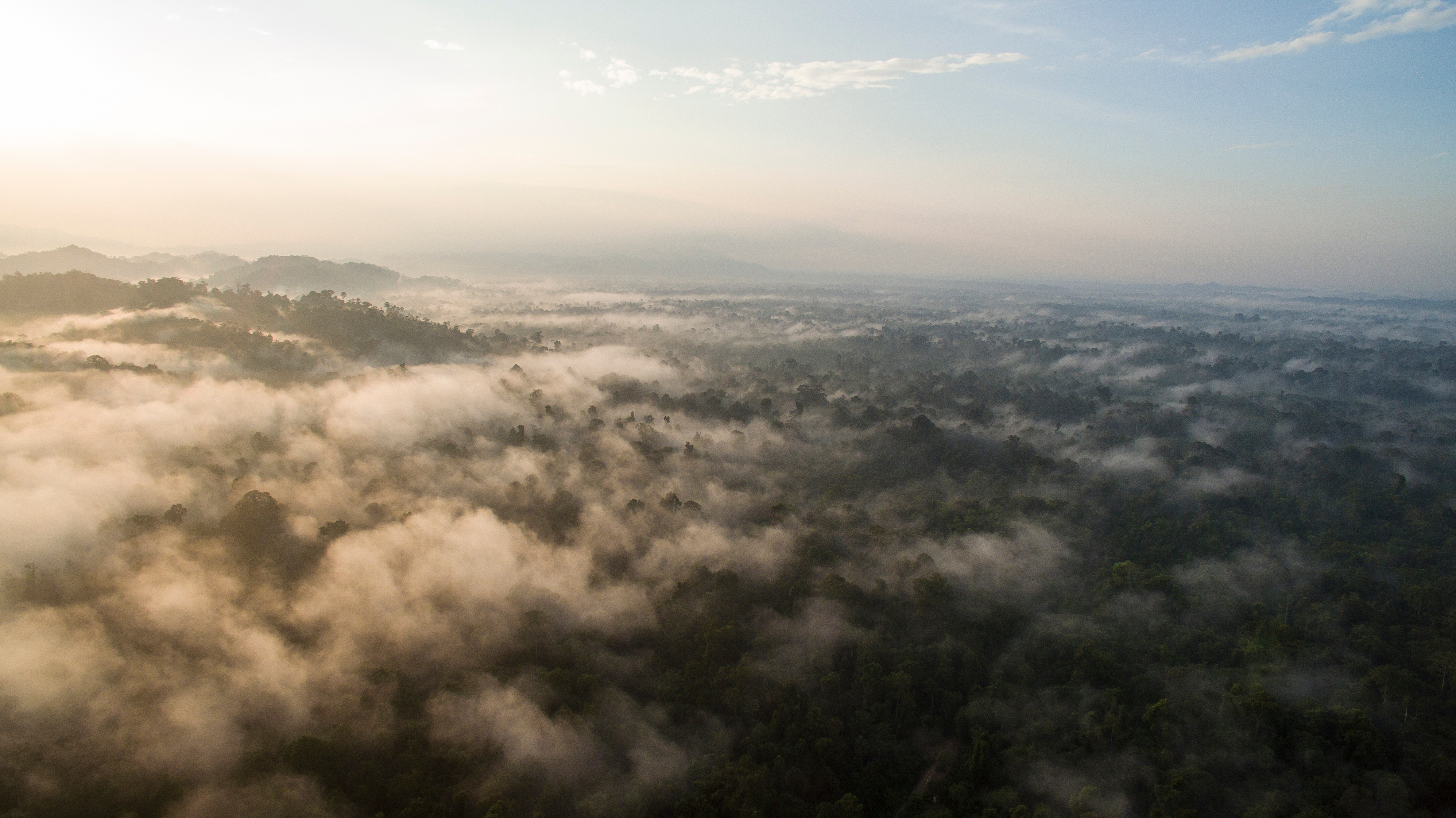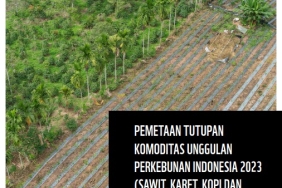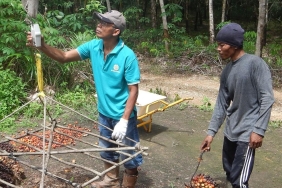COLLABORATING TO PROMOTE TRADITIONAL CULINARY AND GREEN VILLAGE
LANJAK - A number of community components collaborated to hold a year-end gawai in Batang Lupar District, Kapuas Hulu Regency, December 9-12, 2016. This time, the gawai is labeled the Traditional Food Festival and Green Village Development.
The gawai is a form of stimulus for the community to display the wisdom of utilizing its natural resource wealth. In addition, this activity is also a place to display the diversity of cultural values that become the identity of local traditions.
Several components of civil society also joined the government. They are Riak Bumi, PRCF-Indonesia, Dian Tama, Perkumpulan Kaban, Lanting Borneo, Serakop Iban Perbatasan (SIPAT), Forina, Aliansi Organik Indonesia (AOI) and WWF-Indonesia.
All these components collaborate to promote the best practices of communities in Kapuas Hulu in developing villages. Of course, by paying attention to aspects of environmental sustainability and the utilization of food from the forest that is natural, hygienic, and healthy.
Chairman of the Traditional Food Festival and Green Village Development Committee Indra Prasetyo said this activity was in line with efforts to empower the economy of traditional wisdom-based communities. Meanwhile, the central government program has also made Kapuas Hulu a national tourism strategic area (KSPN).
"Kapuas Hulu needs concrete programs. One of them is the development of a green village that is managed based on the knowledge and wisdom of the community's traditions," said Indra, who is also the Head of Promotion and Information of the Kapuas Hulu Culture and Tourism Office.
The Regent of Kapuas Hulu in his speech read by Assistant I for Government Affairs, Frans Leonardus said that currently we are being invaded by instant food. "There are many instant snacks that we consume daily without paying attention to hygiene," he said.
Therefore, Frans explained, the traditional food festival was the main choice in this activity, given the rich potential of natural resources in Kapuas Hulu. Most of them are utilized by the local community to support food availability.
"The various food raw materials are then processed in such a way as to become a typical traditional culinary and can be enjoyed by many people as culinary tourism," Frans explained.
He further explained that the green village concept is to build a sustainable village by prioritizing the principle of increasing community participation. This means that the community becomes a development actor in the management of natural resources in the village in a sustainable manner.
Five village governments in Kapuas Hulu, namely Melemba, Labian, Labian Ira'ang, Sungai Ajung, and Menua Sadap, have adopted the green village concept. It starts with a planning framework, policies, rules, best practices to ensure community livelihoods and improve the carrying capacity of the environment.
In line with the activities in the field, the Kapuas Hulu government and the local parliament are currently working on a regulation on Green Village development in 2016. This is a good initiative from the local government and legislature to provide a clear and open legal basis and space for every village to implement sustainable development practices.
Hulu Kapuas Landscape Leader, WWF-Indonesia West Kalimantan Program Anas Nasrullah said, this activity aims to integrate various results of community-based activities. One of them is sustainable resource management.
"So far, it has been carried out by various institutional components in Kapuas Hulu Regency, including local governments and village governments," Anas said.
As a conservation district, he continued, Kapuas Hulu has a development approach that is oriented towards the principle of sustainability. Strengthening the capacity of village communities is a form of multi-party support for the conservation district designation.
He said this form of support was implemented in villages in the Betung Kerihun - Danau Sentarum National Park corridor area. The villages are encouraged to have a green village development orientation, which is in line with the theme of the current activity, namely affirming the dream of a green and independent village.
"The Traditional Food Festival and Green Village Development, is an effort to promote the sharing of community knowledge in the utilization and management of resources in a sustainable manner," Anas said.
The culinary promotion, he continued, is not only limited to introducing traditional food, but also promoting community best practices that pay attention to aspects of environmental sustainability, hygiene, and health.
Executive Director of the Raik Bumi Foundation, Valentinus Heri, added that the promotion of traditional culinary is one form of community activity in developing green villages. "Apart from having special advantages, food from food sources in the forest also has good taste and health value because it is processed from natural ingredients," he said.
The tradition is in line with the recent trend of the world movement campaigning for slow food as the antithesis of fast food culture. Fast food is considered to have a bad impact on health, which has a major impact on reducing the quality of life.
The Traditional Food Festival and Green Village Development, among others, presents a showcase of local food and beverages, community crafts, and environmental services training and green village workshops. The four-day festival includes various competitions, such as cooking competitions, children's games and drama, and poster making.





